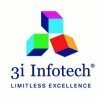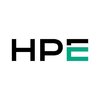Top 250 Operating Systems Interview Questions and Answers
Updated 8 Jul 2025

Asked in Thales

The cut command in Linux is used to extract sections from each line of input.
Used to cut out specific sections of text from a file or input stream
Can specify the delimiter used to separate fields
Options include -c for characters, -f for fields, and -...read more

Asked in 3i Infotech

Q. What is a BSOD error in Windows?
BSOD stands for Blue Screen of Death. It is an error screen displayed on Windows operating systems when a fatal system error occurs.
BSOD is a critical error that causes the computer to crash and display a blue screen with error codes.
It is usually ca...read more

Asked in HCLTech

Q. Do you know what a BSOD is and how to resolve it?
BSOD stands for Blue Screen of Death. It is an error screen displayed on Windows operating systems when a critical system error occurs.
BSOD is a stop error screen that appears when the Windows operating system encounters a fatal system error.
It is us...read more

Asked in HCLTech

Q. What are modern and classic folders?
Modern and Classic folders are two different types of folders in UiPath Orchestrator.
Modern folders are designed for multi-tenancy and allow for more granular control over permissions and access.
Classic folders are the traditional folders in Orchestr...read more

Asked in Kaseya Software

Q. What is an Active Directory?
Active Directory is a directory service that stores information about objects on a network.
It is used to manage users, computers, and other resources on a network.
It provides a centralized authentication and authorization mechanism.
It allows administ...read more

Asked in Directi

Q. What are threads? Why do we use them?
Threads are lightweight processes that enable concurrent execution within a program, improving efficiency and responsiveness.
Threads share the same memory space, allowing for faster communication compared to separate processes.
They are used to perfor...read more

Asked in Samsung Semiconductor

Q. Design a memory allocator for user space programs like malloc.
Design a memory allocator for user space programs like malloc.
The allocator should manage memory efficiently and avoid fragmentation.
It should support multiple threads and handle concurrent requests.
Consider using techniques like buddy allocation or ...read more

Asked in Qualcomm

Q. Differentiate between a process and a thread.
A process is an instance of a program while a thread is a subset of a process.
A process has its own memory space while threads share memory space
Processes are heavyweight while threads are lightweight
Processes communicate through inter-process commun...read more

Asked in Qualcomm

Q. What are the basic functions of an OS?
OS functions include managing hardware resources, providing user interface, and running applications.
Managing hardware resources such as CPU, memory, and storage
Providing user interface for interaction with the computer
Running applications and managi...read more

Asked in Magnon Solutions

Q. How do you kill a process in RHEL 7.2?
To kill a process in RHEL 7.2, use the 'kill' command followed by the process ID.
Identify the process ID using 'ps' command
Use 'kill' command followed by the process ID to terminate the process
Use 'kill -9' command to force kill the process if it doe...read more
Operating Systems Jobs




Asked in Hewlett Packard Enterprise and 2 others

Q. What do you mean by BSOD?
BSOD stands for Blue Screen of Death. It is an error screen displayed on Windows operating systems.
BSOD is a critical system error that causes the computer to crash and display a blue screen with error codes.
It can be caused by hardware or software i...read more

Asked in IBM

Q. What are the causes of a blue screen error?
A blue screen error can be caused by various factors such as hardware issues, driver conflicts, and software errors.
Hardware issues like faulty RAM or overheating can cause blue screen errors.
Driver conflicts occur when incompatible or outdated drive...read more

Asked in Teleperformance

Q. Why is the OS typically installed in the C drive and not other drives?
OS is installed in C drive due to historical reasons and system requirements.
C drive is the default location for OS installation due to historical reasons.
Some system files and programs require installation in the C drive for proper functioning.
Chang...read more

Asked in NetApp

Q. What are some technical differences between Windows and UNIX?
Windows and UNIX have several technical differences.
Windows has a graphical user interface (GUI) while UNIX is primarily command-line based.
Windows uses the NTFS file system while UNIX typically uses the ext4 file system.
Windows supports a wide range...read more

Asked in Capgemini

Q. How do you create a user using single-line commands?
A user can be created in a single line command using the 'useradd' command in Linux.
Use the 'useradd' command followed by the username to create a user.
Specify additional options like home directory, shell, etc. if required.
Example: useradd john -m -...read more
Asked in Lemongrass Consulting

Q. What is the command to check profile consistency in Linux?
The command to check profile consistency in Linux is 'saproot.sh'.
The 'saproot.sh' command checks the consistency of SAP profiles in Linux.
It can be run as the 'root' user or with 'sudo'.
The output of the command shows any inconsistencies in the prof...read more

Asked in Capgemini

Q. What is LVM, and why do we use it?
LVM (Logical Volume Manager) is a disk management tool used in Linux systems to manage storage devices and create logical volumes.
LVM allows for easy management of storage by abstracting physical storage devices into logical volumes.
It provides featu...read more

Asked in Wipro

Q. What do you mean by deadlock in OS?
Deadlock is a situation in which two or more processes are unable to proceed because each is waiting for the other to release a resource.
Deadlock occurs when two or more processes are stuck in a circular waiting state.
It happens when processes compet...read more
Asked in Self Drive Cars

Q. What is the driving time limit?
The limit of drive refers to the maximum distance or duration one can drive without taking a break.
The limit of drive is typically determined by regulations and guidelines set by transportation authorities.
In many countries, there are legal limits on...read more

Asked in Accenture

Q. What is a boot.properties file?
The boot.properties file is a configuration file used by middleware applications to store username and password credentials.
The boot.properties file is typically found in the domain directory of a middleware application.
It is used to store the userna...read more

Asked in Baxter International

Q. What commands do you use to display disk information?
The disk show commands are used to display information about disks in a data center.
Use the 'disk show' command followed by specific options to retrieve disk information
Common options include 'disk show -v' for verbose output and 'disk show -a' for a...read more

Asked in Oracle Cerner

List of 15 Linux commands with their functions
ls - list directory contents
pwd - print working directory
cd - change directory
mkdir - make a new directory
rm - remove files or directories
cp - copy files and directories
mv - move or rename files and direc...read more

Asked in Infosys

Q. Explain threading and how to implement multithreading.
Threading is a technique to execute multiple tasks concurrently. Multithreading can be implemented using threads.
Threading allows multiple tasks to run concurrently, improving performance and responsiveness.
Threads are lightweight processes that shar...read more

Asked in Honeywell Automation

Q. Explain the difference between microkernel and macrokernel.
Micro kernel is a small kernel that only provides essential services while macro kernel provides all services in the kernel space.
Micro kernel provides only essential services while macro kernel provides all services in the kernel space
Micro kernel i...read more

Asked in Capgemini Engineering

Q. How do you delete CTL and ITL files from a phone?
To delete CTL and ITL files from a phone, access the phone's settings, navigate to the security or device administration section, and delete the files.
Access the phone's settings
Navigate to the security or device administration section
Locate the CTL ...read more

Asked in Adobe

Q. Define process and thread.
Process is an instance of a program while thread is a subset of a process that can run concurrently with other threads.
A process is a program in execution
A process can have multiple threads
Threads share the same memory space as the process
Threads can...read more
Asked in The Compu Seconds

Q. What are the major differences between Windows Server 2008 and Windows Server 2012?
Windows Server 2008 and Windows Server 2012 have several major differences.
Windows Server 2012 introduced a new user interface called Metro UI, while Windows Server 2008 uses the traditional Windows interface.
Windows Server 2012 has improved virtuali...read more

Asked in HCLTech

Q. Do you know how to create and manage Users and Groups?
Yes, I know how to create and manage Users and Groups.
To create a user, use the appropriate command or tool provided by the operating system or directory service.
To manage users, you can modify their properties, reset passwords, enable or disable acc...read more

Asked in Qualcomm

Q. What is Binder in Android?
Binder is a mechanism for inter-process communication in Android.
Binder allows different processes to communicate with each other.
It is used for implementing Android's IPC (Inter-Process Communication) system.
Binder uses a client-server model where t...read more

Asked in Capgemini

Q. How do you delete the last 30 days of logs in Tomcat using a shell script?
Deleting last 30 days logs in Tomcat using shell script
Use find command to locate files older than 30 days
Use xargs command to pass the file names to rm command
Use crontab to schedule the script to run periodically

Top Interview Questions for Related Skills
Interview Experiences of Popular Companies










Interview Questions of Operating Systems Related Designations



Reviews
Interviews
Salaries
Users










